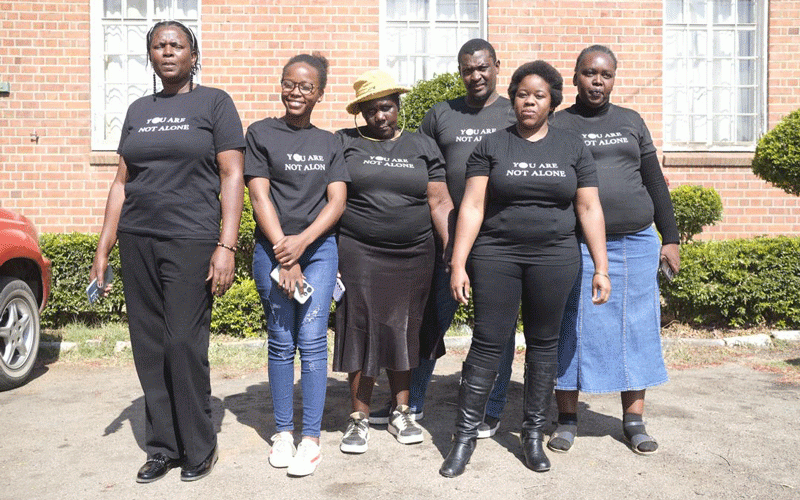
In the month of September, live music in Harare was under threat.
in the groove by Fred Zindi

I can count up to 10 pre-planned concerts which were either postponed or cancelled altogether due to fear of catching that dreaded disease, cholera.
Musicians thrive on crowds attending their shows. Cholera, an infectious disease that causes severe watery diarrhoea, can lead to death if untreated. It is often caused by eating food or drinking water contaminated with a bacterium called vibrio cholerae and it spreads among crowds.
In September, due to the outbreak, the government of Zimbabwe called for a halt to public gatherings in a bid to contain the spread of cholera, which at the last count had claimed over 50 lives.
On Thursday, September 13, at around 3pm an announcement came from the University of Zimbabwe’s Information Office that the graduation ceremony which was to be held the next day (which has now been re-scheduled for this week) had been postponed due to the cholera outbreak.
This did not go down well with two musical groups, one of which had been promised a handsome payout for their performance by one faculty and another which was also supposed to perform at the after-party at the Faculty of Science. One shocked member of the latter group remarked: “This is just not on. I had promised my landlord that he would get his rentals tonight, but with this cancellation, how am I going to face him?”
He came to me trying to find out how his group could be compensated for the cancellation as he had banked all his hopes of paying his rent on this gig.
- Chamisa under fire over US$120K donation
- Mavhunga puts DeMbare into Chibuku quarterfinals
- Pension funds bet on Cabora Bassa oilfields
- Councils defy govt fire tender directive
Keep Reading
The much-hyped Cassper Nyovest and DJ Prince Kaybee show, which was supposed to take place on September 22 at Glamis Stadium in Harare, and the Ammara Brown Ignite Concert with Nigeria’s Mr Eazi at the Harare International Conference Centre (HICC) were cancelled due to the cholera outbreak in the country.
However, due to the fact that cholera had claimed over 50 lives and infected over 6 000 people prompted the government to declare a state of emergency. Events Evolution, the organisers of RSVP concert and the Ammara Ignite concert organisers were forced to cancel the shows. No doubt this cancellation has already cost the promoters large amounts of money as huge and expensive posters were seen all over Harare before the cancellation.
Meetings with the Zimbabwe Tourism Authority and the promoters resulted in both parties agreeing that there was need to show concern on public health and safety since during the concerts there would be vendors who would unknowingly sell possibly contaminated food and drinks to the public.
The annual Chibuku Road to Fame Competition, which was supposed to be held at Glamis Stadium on September 29, was also postponed indefinitely. This, again, was due to fears that if people gathered in large crowds, cholera might be spread among them.
At another venue in Budiriro, a popular band that had been promised performance was angry because the show had been cancelled due to the cholera outbreak.
“This is not fair!” shouted one member of the group. “We are going to starve as a result, and if we starve, we are going to die anyway. So what’s the point of cancelling the gig?” he famed in utter disgust.
I pointed out to him that it was not only about the musicians’ livelihood, but also about the health and safety of whole community, so there was no need to take that selfish attitude.
Some musicians adjusted to the situation by looking for gigs in perceived “cholera-free” areas. For instance, Tanga wekwa Sando and Chibhodhoro on the last Sunday of September took their act to Chez Zandi where people were freely shaking hands and hugging each other without fear of catching cholera.
With this cholera outbreak, not only are the musicians in danger of being infected by people in the crowd, but if one musician shares an instrument with another who is infected, there is also the danger of ending up catching the disease.
String, percussion and keyboard instruments present few hygienic issues that cannot be solved simply by the musicians washing their hands before and after use.
Here are a few precautionary tips that musicians should observe to avoid cholera:
- All musicians should have their own instruments if possible.
- All musicians who play brass instruments like the saxophone, for instance, should have their own mouthpieces if possible.
- All musicians sharing reed instruments must have their own individual reeds. Reeds should never be shared.
- If instruments must be shared, alcohol wipes or other germicide solutions should be available for use between different people.
- When renting or using a musical instrument from someone else, each user must understand that regular cleaning of these musical instruments is required in order to practice proper hygiene.
Besides cholera, there other health issues which musicians must pay attention to. There are some musicians who think that it is fashionable to wear malodourous dreadlocks which have not been washed or attended to for months. Little do they know that the unkempt hair will breed bacteria which is not only evil smelling, but also harmful to the body.
As musicians, we use our bodies in very specific ways. In order to enjoy a lifetime of making and enjoying music, it is crucial that we be aware of the physical hazards that we face on a daily basis, and that we make appropriate and well-informed decisions to protect our bodies.
There was a time when I used to perform in a venue filled with billows of smoke every weekend. Although I didn’t smoke, my clothes were always reeking of cigarette smoke. Soon, I realised that my body was inhaling unpleasant passive smoke every week. I stopped playing in this band, but gave no reasons for quitting as I felt that if I told my band members the truth, they would have laughed at me.
There are other damages of playing in a band which many musicians are not aware of.
Perhaps the most important physical damage that we all potentially face is the loss of hearing. Hearing loss is devastating to anyone, but even more so to those who depend on making and hearing sound as their livelihood. Many of you may already suffer hearing loss and may not even be aware of it. By the time hearing loss has become noticeable, much irreparable damage has been done. It is important to limit one’s exposure to loud sound on a regular basis. If you believe any environment or venue is aurally unhealthy, try and avoid it if possible especially now with diseases such as cholera and typhoid about.
Each performing discipline has its potential hazards, whether it’s vocal nodules for singers or tendinitis for pianists. Many musicians are not aware of the pain they experience as they practise or perform. A keyboard player might not know that they are damaging their fingers until they become paralysed. It is important not to delay seeking help before permanent damage takes place.
It is also important for musicians to become well informed of risks and solutions in order to stay healthy.
Musicians, like everyone else, can feel stressed from time to time. The pressures of becoming/being a professional musician can sometimes be overwhelming. Many practices that contribute to overall physical and emotional wellness also help alleviate the stress that musicians face. My advice is that musicians should take regular rest and exercise and also have a well-balanced, nutritious diet. I am not a medical doctor but if you ask me, what is this thing called health, I will simply state that it is the state in which the individual happens transiently to be perfectly adapted to his or her environment. However, this environment is in constant flux as evidenced by the recent cholera outbreak where we were no longer shaking hands freely when greeting each other as dictated by our cultural norms. Too bad! I hope cholera is dead and buried now.
Feedback [email protected]











